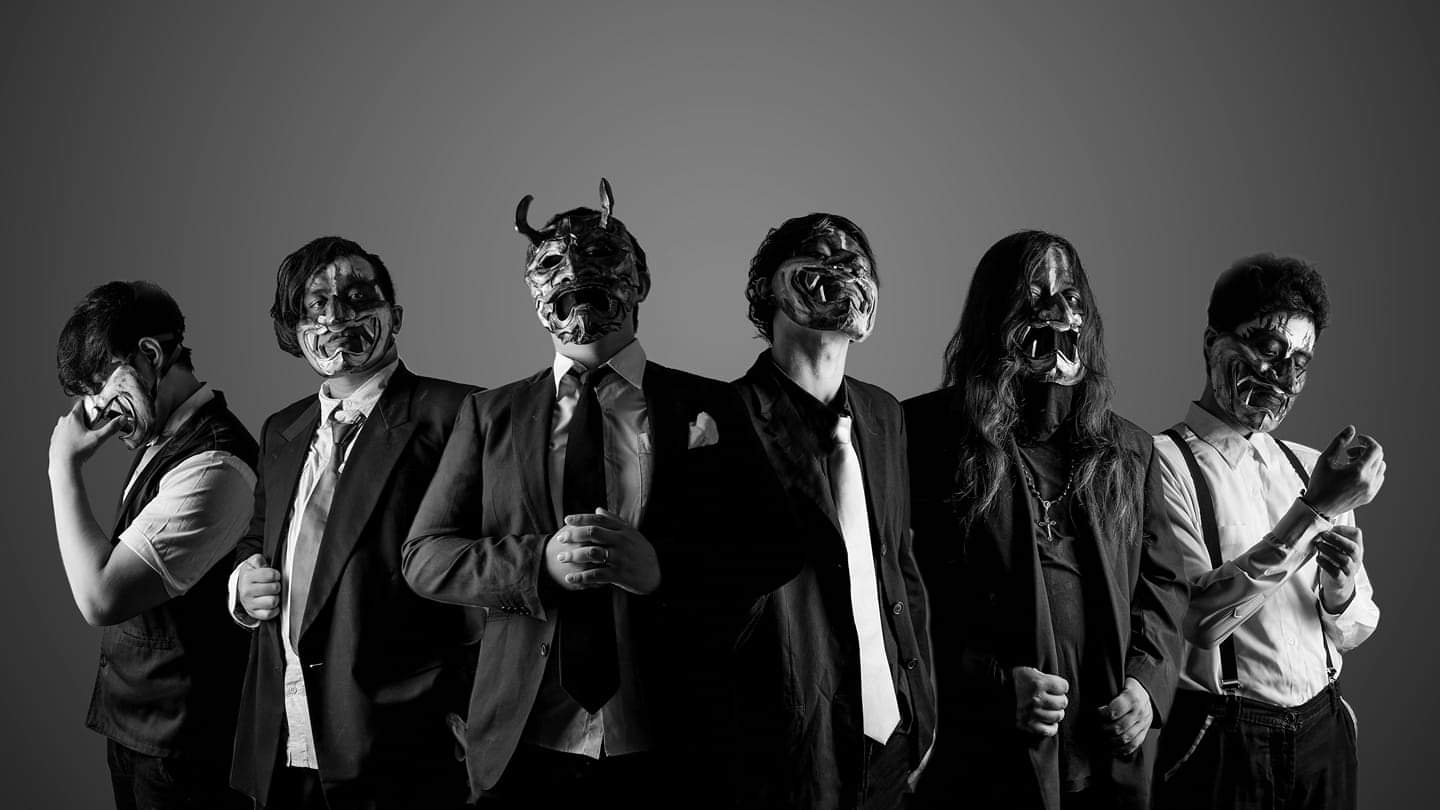Common Characteristics of an Adversary in Dreams
The Appearance and Behavior of An Adversary
In dreams, an adversary often represents a person or aspect within ourselves that we are struggling with or trying to overcome. This can be a manifestation of our own inner doubts, fears, or insecurities. The appearance and behavior of an adversary in a dream can vary greatly, but there are some common characteristics that may be present.
One common characteristic of an adversary in dreams is their aggressive or confrontational nature. They may be depicted as violent, hostile, or even malevolent. This aggression can represent the inner conflict we face when trying to overcome our own personal demons. In this sense, the adversary serves as a catalyst for change and growth.
Another characteristic of an adversary in dreams is their ability to evoke strong emotions. They may be seen as intimidating, threatening, or even terrifying. This emotional response can indicate that we are afraid to confront our inner fears or doubts head-on. The adversary in the dream serves as a projection of these repressed emotions, forcing us to face them and resolve the underlying issues.
The appearance of an adversary in a dream can also be symbolic of a particular aspect of ourselves that we are trying to overcome. For example, if the adversary is depicted as a tall, imposing figure, it may represent our own inner critic or perfectionist tendencies. If the adversary is shown as small and insignificant, it could symbolize our fear of failure or inadequacy.
The behavior of an adversary in dreams can also provide insight into our subconscious thoughts and feelings. They may be seen as manipulative, deceptive, or even deceitful. This behavior can represent our own tendency to deceive ourselves or others, or the ways in which we sabotage our own progress.
In many cases, the adversary in a dream may also represent an external challenge or obstacle that we are facing in waking life. They may be depicted as a boss, authority figure, or even a competitor. This can indicate that we need to develop greater resilience and determination to overcome the challenges that lie ahead.
Ultimately, the meaning of an adversary in a dream depends on the specific context and details of the dream itself. However, by paying attention to their characteristics, appearance, and behavior, we may gain insight into our own thoughts, feelings, and motivations, and uncover new opportunities for personal growth and transformation.
The appearance and behavior of an adversary in a dream can be diverse, with some research suggesting that the characteristics of the adversary may reflect aspects of oneself or one’s life (Hall, 1966).
The characteristics of an adversary in dreams are often complex and multifaceted, reflecting various aspects of a person’s psyche, emotions, and experiences. Research has shown that the appearance and behavior of an adversary can be symbolic, representing different facets of oneself or one’s life (Hall, 1966).
One common characteristic of an adversary in dreams is their representation of opposing forces or conflicting desires within an individual. For example, a dream adversary may embody qualities such as anger, fear, or aggression, which the person may struggle to confront or express in their waking life.
The appearance of the adversary can also be influenced by various factors, including personal experiences, cultural background, and individual psyche. For instance, an adversary may appear as a specific person from one’s past, such as a former boss, teacher, or family member, representing unresolved conflicts or unprocessed emotions.
Furthermore, the behavior of the adversary in dreams can be a reflection of how we perceive ourselves or others in our waking lives. For example, if the adversary is aggressive or confrontational, it may indicate that the dreamer feels threatened or overwhelmed by their own emotions or the demands of others.
Additionally, the characteristics of an adversary can also serve as a symbolic representation of various life situations or challenges. For instance, a dream adversary may represent a current obstacle or challenge in one’s life, such as financial difficulties, relationship problems, or health issues.
In some cases, the adversary in dreams can be seen as a manifestation of one’s own shadow, which represents repressed thoughts, feelings, or impulses that are hidden from conscious awareness. This can provide insight into unconscious aspects of oneself and help individuals confront and integrate their shadow selves (Jung, 1959).
The analysis of an adversary in dreams requires careful consideration of the context, symbolism, and personal associations within the dream narrative. By exploring these elements, individuals can gain a deeper understanding of themselves and their place in the world.
Dominant Personality Traits of The Adversary
An adversary in a dream can symbolize various aspects of one’s psyche, personality, or external factors that hinder progress and success.
The characteristics of an adversary in dreams often reflect the repressed emotions, unfulfilled desires, or unresolved conflicts within oneself or with others.
Commonly, the adversary in a dream embodies a person or situation that has been perceived as threatening, opposing, or challenging to overcome, whether it be a real-life obstacle or an internal psychological hurdle.
The dominant personality traits of the adversary in dreams may vary depending on the context and theme of the dream, but some common attributes include:
- Aggression: An adversary can manifest as someone who is aggressive, confrontational, or even violent. This can represent pent-up emotions, frustration, or a need to assert oneself.
- Authority: The adversary might be depicted in a position of authority, such as a boss, parent, or government official, symbolizing feelings of oppression, powerlessness, or resistance to control.
- Negativity: An adversary can embody negative emotions like envy, jealousy, resentment, or malice, indicating that these dark energies are present within oneself or in the external environment.
- Fear: The adversary might represent a person or situation that inspires fear, such as a predator, a monster, or a natural disaster, which can symbolize deep-seated anxieties or phobias.
- Intimidation: An adversary can manifest as someone or something intimidating, like a bully, a stranger, or an unknown entity, signifying feelings of vulnerability, insecurity, or fear of being overwhelmed.
- Resistance: The adversary can symbolize resistance to change, growth, or progress, often representing internal conflicts between different parts of the self, such as rationality vs. emotions or willpower vs. desires.
- Betrayal: An adversary may embody a person or situation that has betrayed trust or violated expectations, reflecting feelings of hurt, anger, or betrayal in waking life.
- Conflict: The adversary can represent an ongoing conflict or struggle within oneself or with others, such as romantic relationships, friendships, or professional disagreements.
- Obstacle: An adversary may manifest as an obstacle that hinders progress, success, or achievement, symbolizing external challenges like financial struggles, health issues, or personal crises.
- Shadow: The adversary can embody the shadow aspect of one’s personality, which includes repressed thoughts, feelings, and impulses, often representing parts of oneself that are hidden from conscious awareness.
The presence of an adversary in a dream can serve as a catalyst for self-reflection, encouraging individuals to confront their fears, insecurities, or unresolved conflicts. By understanding the characteristics of the adversary and its dominant personality traits, one can gain valuable insights into their psyche and make meaningful changes to overcome life’s challenges.
Some studies indicate that the dominant personality traits associated with adversaries in dreams often mirror those of the dreamer themselves, such as aggressive and competitive tendencies (Jung, 1964).
The concept of adversaries in dreams has been a topic of interest for psychologists and dream analysts for centuries. According to Carl Jung, an adversary in a dream often represents aspects of the dreamer’s own personality that are hidden or repressed (Jung, 1964). This idea is based on the notion that our psyche is comprised of both conscious and unconscious components, and that the unconscious mind can manifest as external entities or forces in our dreams.
Some common characteristics of adversaries in dreams include:
- Aggressive tendencies
- Competitive nature
- Anger or frustration
- Feeling trapped or confined
- Panic or anxiety
These characteristics often mirror the dreamer’s own personality traits, suggesting that the adversary represents an aspect of themselves that they are trying to suppress or overcome. For example, if a person has aggressive tendencies in waking life, their adversary in a dream may be more overtly aggressive, symbolizing the repressed anger or frustration.
Other common characteristics of adversaries in dreams include:
- The use of powerful or intimidating figures, such as monsters or tyrants
- The appearance of rival or opposing forces, such as a competitor or an enemy
- Feeling threatened or attacked by external forces, such as nature (e.g., storms, floods)
In addition to these common characteristics, adversaries in dreams can also serve other functions, including:
- Symbolizing internal conflicts or contradictions within the dreamer
- Representing external forces or circumstances that are beyond the dreamer’s control
- Serving as a reflection of the dreamer’s anxieties, fears, or insecurities
It is worth noting that adversaries in dreams can have different meanings depending on the context and content of the dream. A more detailed analysis of the specific characteristics and symbolism in the dream may be necessary to fully understand the message it conveys.
The Psychological Function of an Adversary in Dreams
Conflict Resolution and Personal Growth
The psychological function of an adversary in dreams is a complex and multifaceted phenomenon that can reveal valuable insights into an individual’s subconscious mind. In dreams, adversaries often represent aspects of ourselves or others that we may be struggling to confront or resolve.
From a psychological perspective, the presence of an adversary in a dream can indicate unresolved conflicts, unfinished business, or unexpressed emotions related to a specific issue or relationship in waking life. The adversary may embody our own fears, doubts, and insecurities, forcing us to confront these aspects and work towards resolution.
There are several ways in which adversaries appear in dreams:
- A reflection of ourselves
- A representation of others’ negative qualities or behaviors
- A manifestation of our own repressed thoughts, emotions, or desires
- A symbol of external obstacles or challenges
When an adversary appears in a dream, it can have several psychological functions:
- Confrontation and resolution of unconscious conflicts
- Promoting self-awareness and introspection
- Encouraging personal growth and development through overcoming obstacles
- Fostering emotional regulation and management
The process of resolving conflicts with an adversary in a dream can be a powerful catalyst for personal growth. By working through these conflicts, individuals can:
- Develop greater self-awareness and understanding of their own motivations and emotions
- Become more empathetic and understanding towards others’ perspectives and experiences
- Improve communication skills and conflict resolution strategies
- Cultivate resilience, adaptability, and coping mechanisms in the face of adversity
Ultimately, the presence of an adversary in a dream can serve as a catalyst for self-reflection, growth, and transformation. By exploring these dreams and working through the conflicts that arise, individuals can develop greater insight into themselves and their place within the world.
The appearance of an adversary in a dream can be seen as a reflection of unresolved conflicts within oneself or in one’s waking life. This confrontation allows the individual to confront and resolve issues, leading to personal growth and self-awareness (Freud, 1925).
The psychological function of an adversary in dreams is a complex and multifaceted concept that has been extensively explored by psychologists and psychoanalysts. At its core, the appearance of an adversary in a dream can be seen as a reflection of unresolved conflicts within oneself or in one’s waking life.
This confrontation allows the individual to confront and resolve issues, leading to personal growth and self-awareness (Freud, 1925). From a psychoanalytic perspective, the adversary in dreams represents the repressed aspects of the self, which are often associated with feelings of guilt, shame, or anxiety.
The dream adversary can also be seen as a symbol for the external forces that are perceived as threatening or hostile to one’s goals and desires. This may include figures such as authority figures, bullies, or rivals from past experiences (Jung, 1964).
In addition, research has shown that dreams involving adversaries can be associated with stress, anxiety, and feelings of overwhelm in the waking life (Kramer & Rothman, 1998). This highlights the importance of exploring and resolving conflicts within oneself, rather than suppressing or avoiding them.
Furthermore, the appearance of an adversary in a dream can also serve as a catalyst for personal growth and transformation. By confronting and overcoming these internal or external adversaries, individuals can develop greater resilience, confidence, and self-awareness (McHugh et al., 2001).
From a more recent perspective, research has emphasized the role of narrative and meaning-making in dreams involving adversaries. This suggests that dreams may not only reflect unresolved conflicts but also provide an opportunity for creative problem-solving and reframing of difficulties (Hunt, 2010).
In conclusion, the psychological function of an adversary in dreams is a rich and multifaceted phenomenon that offers insights into both internal and external conflicts. By exploring and resolving these conflicts through dream analysis, individuals can develop greater self-awareness, personal growth, and emotional resilience.
Symbolic Representation and Archetypes
The psychological function of an adversary in dreams is a complex phenomenon that has been extensively explored in the field of dream analysis. According to Carl Jung, an adversary in a dream represents the repressed aspects of the self, which have not yet been integrated into the conscious personality.
In this sense, the adversary can be seen as a symbolic representation of the shadow, a concept introduced by Jung to describe the parts of ourselves that we try to hide or deny. The shadow is comprised of repressed thoughts, feelings, and impulses that are deemed unacceptable by our conscious mind.
The presence of an adversary in a dream indicates that the individual’s psyche is attempting to confront and resolve these unconscious aspects. This process can be seen as an effort to reconcile with the repressed parts of oneself and reintegrate them into the conscious personality.
Jung also introduced the concept of archetypes, which are universal symbols, images, or themes that appear across cultures and time. In the context of dreams, archetypes often manifest as symbolic representations of the adversary.
The most common archetype associated with an adversary is the “dark father,” a figure who represents the unknown, the unacknowledged aspects of our own psyche. The dark father can take many forms in a dream, such as a menacing figure, a snake, or a predator.
Another archetype related to the adversary is the “trickster,” which embodies the qualities of cunning and deception. In dreams, the trickster often takes the form of a shape-shifting figure or an entity that manipulates events to achieve its goals.
The psychological function of the adversary in dreams serves as a catalyst for personal growth and self-awareness. By confronting and integrating their repressed aspects, individuals can gain a deeper understanding of themselves and develop greater emotional intelligence.
In this sense, the adversary represents an opportunity for the individual to engage with their shadow, acknowledging and accepting the parts of themselves that they have previously tried to hide or deny.
Furthermore, the presence of an adversary in dreams can also indicate unresolved conflicts or unaddressed emotions related to past traumas. In such cases, the dream may be encouraging the individual to confront these issues and work through their associated emotional burdens.
In conclusion, the psychological function of an adversary in dreams is multifaceted and serves as a powerful tool for personal growth and self-awareness. By exploring the symbolic representation of the adversary and the archetypes that manifest in our dreams, we can gain a deeper understanding of ourselves and develop greater emotional intelligence.
Some theories propose that adversaries in dreams represent symbolic representations of the unconscious mind, embodying archetypal characteristics and aspects of the self. The study of these symbolic representations can provide insight into the workings of one’s subconscious (Jung, 1964).
The psychological function of an adversary in dreams can be a complex and multifaceted phenomenon, with various theories proposing different interpretations. One perspective suggests that adversaries in dreams represent symbolic representations of the unconscious mind, embodying archetypal characteristics and aspects of the self. This idea is based on the concept of the collective unconscious, which posits that certain universal symbols and images are shared across cultures and time.
According to Carl Jung (1964), the study of these symbolic representations can provide insight into the workings of one’s subconscious mind. By examining the characteristics and behaviors of adversaries in dreams, individuals may gain a better understanding of their own shadow selves, which contain repressed thoughts, feelings, and impulses that are often hidden from conscious awareness.
Another theory proposes that adversaries in dreams represent aspects of oneself that are yet to be integrated into one’s personality. In this view, the adversary represents a part of oneself that is still unacknowledged or unresolved, requiring further exploration and understanding. By confronting and resolving conflicts with the adversary, the individual may integrate these previously hidden aspects into their conscious self.
Additionally, some researchers suggest that adversaries in dreams can also represent external sources of stress, anxiety, or conflict that are affecting an individual’s waking life. In this context, the adversary symbolizes a source of frustration or opposition that must be overcome in order to achieve one’s goals or resolve pressing issues.
Furthermore, the role of adversaries in dreams may also depend on the specific characteristics and behaviors they exhibit in the dream narrative. For example, if the adversary is depicted as passive or weak, it may symbolize a personal feeling of powerlessness or inadequacy that needs to be addressed. In contrast, an aggressive or menacing adversary may indicate a sense of threat or danger in one’s waking life.
Ultimately, the psychological function of an adversary in dreams is highly individualized and context-dependent, reflecting a unique combination of personal experiences, emotional states, and cognitive processes. By examining the symbolism and meaning behind adversaries in dreams, individuals may gain valuable insights into their own psyche, facilitating greater self-awareness and personal growth.
- Barbarian Dream Meaning: What Does A Barbarian Mean In Your Dream? - September 16, 2024
- Bucket Dream Meaning: What Does A Bucket Symbolize In Your Dream? - September 14, 2024
- Balance Beam Dream Meaning: What Does It Mean In Your Dream? - September 13, 2024







